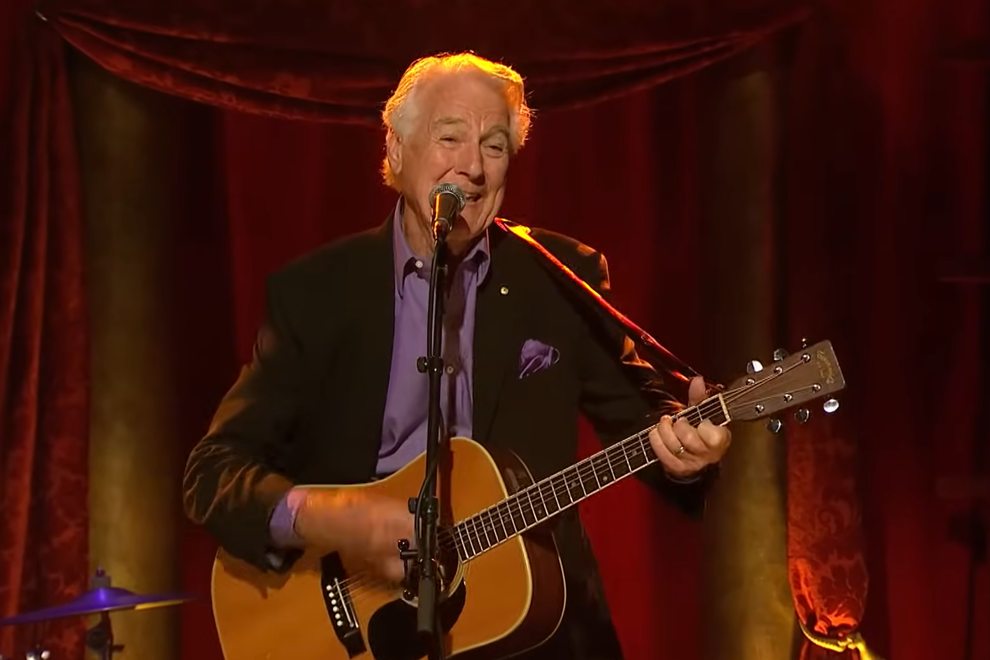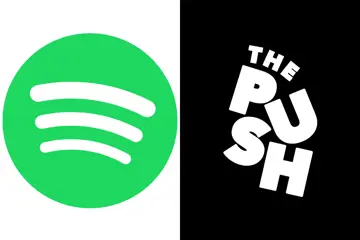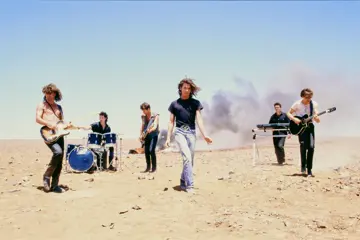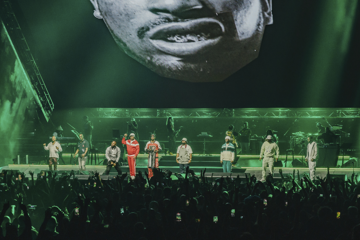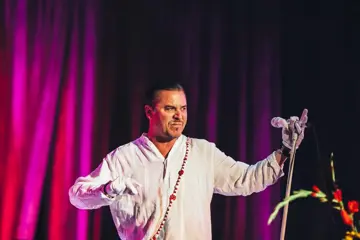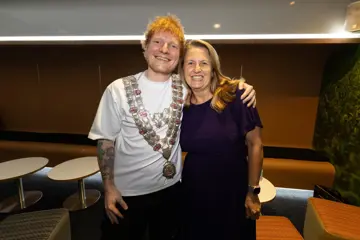The word legend is overused in the music business, but Col Joye was a legend. He was the first Australian pop artist to top the charts. He blazed a trail for Aussie acts in the ’50s and ’60s. He was instrumental in the career of the Bee Gees. And he never stopped advocating for Australian music.
Col Joye has died in Sydney at the age of 89.
If Johnny O’Keefe was our first “bad boy” – our Elvis or Jerry Lee Lewis – then Col Joye was the “good guy”, our Pat Boone or Ricky Nelson.
“Col Joye was a goody-goody,” Col laughed when I asked about his rivalry with JO’K. “The mothers would let their children come and see me – ‘He’s a nice boy, that Col Joye.’
“We drew an entirely different kind of audience to John O’Keefe. The people who went to see John were much more likely to bung on a blue than our people.”
Col was the first Australian pop act to have a number one hit, hitting the top in 1959 with Bye Bye Baby, eight months after country star Slim Dusty topped the charts with A Pub With No Beer.
Col had another chart-topper in 1959, Oh Yeah Uh Huh, which was also the first number one hit to feature a typewriter.
“The song was given to me by the same person who gave me Bye Bye Baby – radio DJ John Burls,” Col explained. “They were both country songs.
“I recorded the song with Robert Iredale, a recording engineer who was ahead of his time. He also worked with Johnny O’Keefe, Dig Richards and Lucky Starr.
“He said: ‘I can hear something ticking in there, like a typewriter, instead of a drum … We’ll get a typewriter!’
Don't miss a beat with our FREE daily newsletter
“All of the offices were locked because we were recording on a Sunday. But the walls didn’t go all the way to the roof, so we jumped over the wall and got a typewriter.
“The first time we used the typewriter, it went ‘tick, tick, tick’, but when we got to the end of a line, the bell went off, and we couldn’t have that on the record. So, Robert set it up so that it went ‘tick, tick’ in the one spot. It cut a big hole in the roller, but no one at Festival ever said anything about it.”
Normie Rowe was just one of the local performers inspired by Col Joye. “I had only two rock ’n’ roll idols,” Normie says. “One was Johnny Chester in Melbourne, and nationally it was Col Joye. He was my big idol.”
Normie sang Col’s (Rockin’ Rollin’) Clementine at a talent quest when he was 10. “I won Best Performer of the Night,” Normie recalls. “I’ve still got the cup at home.”
Col was born Colin Jacobsen on April 13, 1936. He left school at 14, working at a jewellery company, packing boxes. He later joined his brother’s band, The KJ Quintet. They played with home-made guitars.
Their lives changed when they saw the American movie Blackboard Jungle, which featured Bill Haley’s Rock Around The Clock. “In the semi-darkness, we sketched out what we thought their guitars looked like. Keith, my younger brother, made the necks and the fretboards. They were all right up till the fourth or fifth fret, then they went horribly out of tune.
“You didn’t have to be good to play them, but you had to be strong ’cause they were cut from a log of wood.”
The KJ Quintet was working at the Maroubra Junction Hotel when a promoter named Bill McColl asked them to play at his Jazzorama gig in Manly. They decided on a name change for the band, having a meeting with Bill and a clairvoyant named Fiona McCallum, who was a fan. “We came up with Col Jay and the Playboys,” Col recalled.
But Fiona had another idea. “She said, ‘Basically, you’re a happy bunch, so why don’t you call yourself Col Joy and put an ‘e’ on the end – Col Joye and the Joy Boys?’
“That sounded all right – of course, it was after midnight, so anything would have sounded good. And I had to get home to bed – I had to get up and catch the two past seven train to get to the jeweller’s.”
Col had second thoughts on the drive home. He told his brother Kevin: “Listen, that Joy Boys sounds a bit off – we’ll have people flapping handkerchiefs at us.”
“Yeah,” agreed Kevin, “I was just thinking that. We’ll change it in the morning.”
Kevin called Bill McColl. “Look, we’re not going to be Col Joye and the Joy Boys, we’re going to be Col Jay and the Playboys.”
“It’s too late,” Bill replied. “I’ve already called the printer and you’re Col Joye and the Joy Boys.”
But when the flyers for the gig arrived, they read: “Ool Joye and the Joy Boys.”
Col was not happy. “Ool?! I sound like a Swede!”
The Jacobsen boys used a razor blade to try to change the “Ool” to “Col”. After doing about 500, they gave up.
They decided to do just one gig as Col Joye and the Joy Boys. “But we never did get around to changing it.”
In the US, Col was often referred to as “Colonel Joye” – they thought “Col” was an abbreviation of “Colonel”.
Col became a regular on Brian Henderson’s Bandstand, and when Bye Bye Baby became a big hit, the Joy Boys became the highest-paid act in the land, increasing their fee from 35 pounds to 100 pounds.
“What?” said one incredulous promoter. “I could get Sinatra for that!”
Kevin Jacobsen told the promoter, “If you advertise it right, you’ll get our 100 pounds plus 100 for yourself.” Which he did.
Col and his brother were pioneers in the local music business. “We were self-reliant – we’d do three to four dances a week, take the door, mix our own drinks, pay our own bouncers, and Kevin [who was also an accountant] would keep it all together.”
Despite their rivalry, Col and Johnny O’Keefe became good mates. “He was a naughty boy,” Col smiled, “but sometimes he was the best little boy you’d ever met – he had a loving side to him.”
Col and Johnny did an ABC show together called Your Hits And Mine. “I sang his hits and he sang mine,” said Col, who wanted to do a Your Hits And Mine record, but it never happened.
“We went through a bad patch when The Beatles arrived, and we couldn’t get arrested. I suggested to John that we could help each other out by sharing some office costs and doing some shows together, but his ego wouldn’t let him do it.”
Col had his last chart-topper in 1973 with Heaven Is My Woman’s Love.
He continued to record, while also working behind the scenes with brother Kevin. They started a record label and publishing company, as well as touring superstars such as Bruce Springsteen, Barbra Streisand, Michael Jackson and the Bee Gees. And they produced theatre hits such as Beauty And The Beast and the Johnny O’Keefe musical, Shout!
Col was instrumental in the career of the Bee Gees, mentoring them in Australia.
He met the Gibb brothers in 1961 at a party on the Gold Coast. “It was 3 am,” Col remembered, “and I said, ‘I’m going to bed.’ But this guy said, ‘Wait there, we’ve got these kids coming to sing.’”
At 3:15 am, the kids arrived. Col chose one word to describe their performance: “Knockout.”
The following day, Col was doing a gig at a church hall and he invited the kids to come along, so he could have another listen to their songs. Col taped their performance. “I still have the tape somewhere. It starts: ‘My name is Barry Gibb, I live at 23 Cambridge Avenue, Surfers Paradise, and my first song is Let Me Love You.”
Col took the tape to Festival Records, but his knockout act got a knockback. “Groups don’t sell,” the A&R man told him. But Col convinced the label to sign the brothers, saying he would produce them.
“They had this magic sound and there was something between them – they knew when the melody went to the harmony, and they all did it together, just naturally.”
The Gibb brothers lived at Col’s house in Sydney, and he introduced them to the Bandstand audience.
Col produced the Bee Gees’ debut single, 1963’s The Battle of the Blue and the Grey.
“I didn’t have the expertise to get their sounds on a record, but I did make a few records with them,” Col said modestly.
Col also recorded (Underneath The) Starlight Of Love, an early Barry Gibb composition. And the brothers Gibb provided the backing vocals.
Remembering how much Col had done for them, the Gibbs sent their younger brother, Andy, back to Australia in 1974, to start his solo career under the guidance of Col Joye and his brother Kevin.
Andy Gibb went on to have three number-one singles in the US.
“I think if you can work in Australia and be successful, you can do it anywhere in the world,” Col believed. “I’m convinced of that.”
Along with his dear friend Little Pattie, Col performed for the troops in Vietnam. And in 1972, Col was part of the all-star cast that performed It’s Time, the song that helped propel Gough Whitlam to become Prime Minister.
When Gough met Col, he asked the singer what he could do for the music industry. Col suggested that the radio needed to play more Australian music.
When Gough was elected, he increased the Aussie quota on commercial radio.
Col Joye was part of ARIA’s first induction into the Hall of Fame in 1988.
He will be remembered as a pioneer of the Australian music industry and a great bloke. As Normie Rowe noted, “Col Joye was a true gentleman of the industry. I don’t think anybody could have ever had a bad word to say about Col.”

